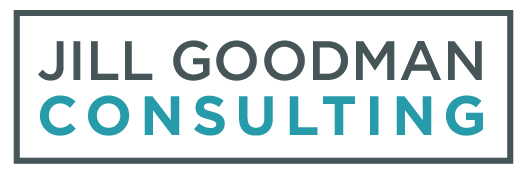Leadership Strategy: Internal Word of Mouth
I worked with a school that was struggling with its advancement efforts. Admissions, Marcom, and Development were not working together, and each was siloed and borderline antagonistic toward the other. The development director left the school mid-year, and I was asked to work with the interim director, an internal, temporary promotion, to guide and advise her in her new role.
With this promotion she was invited to attend the weekly administrative team meetings. The interim director was surprised at the volume of information shared at the meeting by leaders about all aspects of the school. She learned about needs in the middle school that the development team could address, enrollment concerns in the lower school, budget concerns due to increased financial aid demand, and a problem with the newly installed gym floor. She also heard about spectacular wins: seniors accepted to more first-choice colleges, positive feedback about the new no-cell phone policy on campus, and hiring new staff in the student support office.
This transparency was a striking revelation for the new interim director and in stark contrast to her previous experience, where her former director kept all information from the meetings confidential. She wondered if the lack of transparency extended to the academic side of the school. Her conversations with her daughter’s teachers and two department chairs confirmed her suspicion. “No,” they said, “we have no idea what goes on with the administrative team.”
When school leaders and consultants talk about the power of word-of-mouth marketing, they are usually referring to ways to encourage parents to say positive things to other parents to increase the volume of enrollment inquiries and retain more current families. I will counter that with two questions:
Who are the people whose word of mouth is most powerful? (answer: faculty and staff)
Who are we most likely to disregard in having that power? (answer: faculty and staff)
In the absence of real information, everyone at school will imagine a scenario that may be true or not. But the conjured scenario is surely driven by each person’s anxiety. Parent gossip and sharing poor school experiences affect retention, but more concerning to parents is when faculty or staff complain about the school, school leadership, or the next division. How can we help faculty and staff complement the efforts of advancement by bolstering their ability to facilitate good word-of-mouth?
In a podcast episode of At The Table with Patrick Lencioni titled The Power of Word of Mouth, Patrick and his team discuss a strategy to leverage administrative team meetings to better effect and deploy the team to create positive word-of-mouth: communicate key points of the meeting to direct reports immediately, and only in a face-to-face meeting. Not in an email or newsletter, but speak to people you work with, supervise, and care about.
Let’s imagine that in my client example, the head of school wrapped up each administrative team meeting with 5-10 minutes to recap the two points that the group agreed on and will be communicated across the school this week. Those two points will be part of every conversation in the next 24 hours and will move from the administration to the department chairs and deans, teachers, classroom assistants, and staff members. The points may frame classroom conversations or discussions with parents.
One of the complaints that comes up in every satisfaction survey for parents or faculty is quality of communication, much to the chagrin of the Marcom department, who work all hours of the day to communicate what has been deemed by administrators to be essential to communicate. But, if the Head of School and administrators are not regularly communicating what comes out of their meetings, by the time the information is released weeks later, fully curated and formed by the Marcom team, there is push-back and skepticism in the community due to lack of trust.
To quote Pat Lencioni, “Tell true rumors. And, it’ll spread like wildfire.”
The author, Jill Goodman, is a consultant working with independent school leaders to advance their school’s mission, enhance their processes, and bolster their skills. Learn more about all services here.


